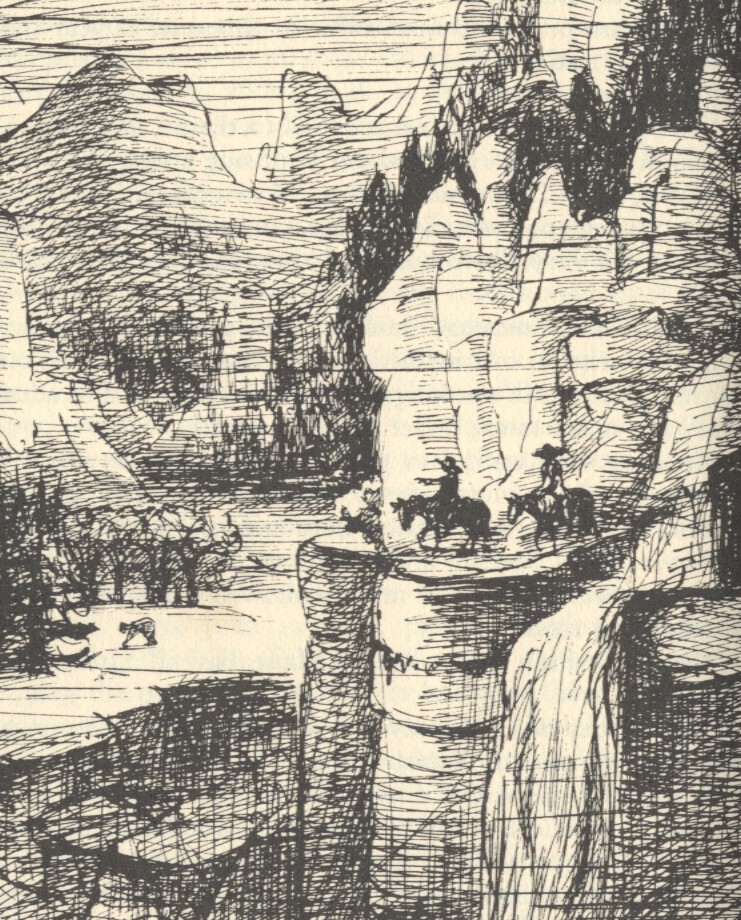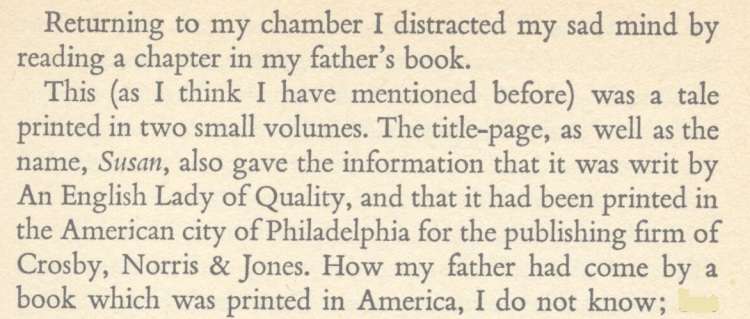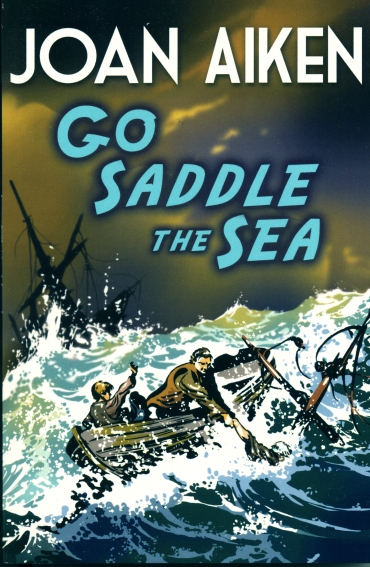Tales from different times… Joan Aiken’s hero Felix Brooke, and Jane Austen’s ‘Susan’ –
or should that be Catherine Morland..?
Joan Aiken’s passion for history often led her to wonder how events might have turned out differently? What if, for instance, Jane Austen’s early novel, originally entitled ‘Susan’ when she sold it to a publisher in 1803, and which then languished unpublished until she furiously bought it back for £10 thirteen years later, had in fact come out, maybe without the knowledge of its author, and had been a treasured possession, carried in the pocket of a young English nobleman when he ran away to join the Peninsular wars in Spain at the beginning of the 19th century.
The young man falls in love, and marries an aristocratic Spanish girl who dies having his baby, and he watches over the boy, disguised as a groom, until his own death. He leaves a letter, and his treasured book, to the boy, Felix Brooke, with a message telling him to seek out his long lost family in the city of Bath in England, where the action of Austen’s novel had taken place. For Joan Aiken imagined that the book was actually Jane Austen’s early novel, ‘Northanger Abbey’ written in the full enthusiasm and confidence of youth, and a delightful parody of all the Gothic romances so popular at the time.
Austen’s novel is a description of an innocent abroad (although in her case it is a first visit to a big city) a heroine with a head full of fantasy from reading too many novels, who finds herself alone in a dangerous society, struggling to make sense of the behaviour of unscrupulous villains – or apparently solicitous friends – with nothing but the world of fiction to guide her. This is much the same situation in which Joan Aiken’s Spanish orphan, young Felix Brooke finds himself, but in a truly wild and Gothic landscape with terrifying brigands and murderers, mountain tribesmen looking for a human sacrifice, or even pirates who specialise in the kidnap of children…and he only has the assistance of Austen’s novel to sustain and comfort him.
In Joan Aiken’s Go Saddle the Sea, Felix tells us about the novel as he is recounting his own story:
“The book, Susan, was an odd tale about a young lady and her quest for a husband; to tell truth, I wondered what my father had seen in it, that he had even carried it with him into battle; I found it rather dull, but since it had been my father’s I kept it carefully (his bloodstains were on the cover).”
Later in his adventures, having escaped various perils by the skin of his teeth and the use of his not inconsiderable wits, Felix has time to look into the book again, and reconsiders:
“I had opened it at the place where Miss Susan, going to stay with her great friends in their abbey-residence, is terrified at night by a fearful storm and the discovery of a paper,hid in a closet in her bedroom, which she takes to be the confession of some wicked deed of blood – only to find, next day, that the mysterious paper is naught but a washing bill! For the first time, this struck me as very comical; yet, reading it through again, I could see that the writer had represented the poor young lady’s terrors very skilfully; just such a nightmarish terror had I felt myself among those unchancy people in that heathen village – and yet for all I knew, my fears were equally foolish and unfounded! I began to see that this was not such a simple tale as I had hitherto supposed, but must be attended to carefully; and I gave my father credit for better judgement than I had at first…wondering what kind of man my father had been..and hoping that some person in England would be able to tell me more about him.”
In an article for the Jane Austen Society, Joan Aiken describes with relish the content of Mrs. Radcliffe’s bestseller, The Mysteries of Udolpho, which Austen had gleefully satirised:
“If we take a look at the works of Mrs. Radcliffe, we can easily see what tempted the youthful Jane Austen to poke fun at them…[they were] enormous historical canvases splashed over with forests and beetling fortresses and dark crags in the Appennines. Mrs. Radcliffe went in for immense casts of characters on a positively Shakespearian scale (she was in fact much influenced by Shakespeare for whom she had great admiration); she had stabbings and shootings, suicides and assassinations, immensely complicated family relationships, long-lost relatives in every possible connection, suggestions of incest, mysterious resemblances, and, besides all this, a large number of startling, apparently supernatural occurrences..”
From this we can see that these earlier writers had an equally powerful influence on Joan Aiken’s own work, and by setting her novel, Go Saddle the Sea in a rip roaring Gothic world of her own imagination in 19th century Spain, and with a nod to Austen’s own parody, she could have the best of all worlds!
~ ~ ~ ~ ~ ~ ~ ~ ~
Go Saddle the Sea is the first of the three ‘Felix’ Novels in EBook editions in the UK
For more details visit the Joan Aiken page at Random House
or visit the Felix pages at The Wonderful World of Joan Aiken
*****

Joan Aiken’s Gothic imagination is wonderfully matched in this trilogy
by the illustrations of Pat Marriott


How wonderful that the Felix novels are being re-released! I remember Go Saddle the Sea (though the Susan references went right over my head at the time), but I don’t think I had a chance to read the others. I can see I have hours of happy reading and re-reading ahead of me!
LikeLike
Thanks Amy! Yes, trust Joan to throw in such an odd mix of elements, I only worked it out recently myself. They are some of her best writing I think,well worth re-reading, wonderful period atmosphere, and so exciting…!
LikeLike
Have Northanger Abbey to read, as I should really read this before reviewing all three Felix titles (which I’ve read and enjoyed).
Was nearly tempted by The Mysteries of Udolpho till I saw how thick it was! I have however read Walpole’s The Castle of Otranto, and as that was the grand-daddy of Gothick novels I may be forgiven for bypassing Ann Radcliffe’s blockbuster.
LikeLike
Almost wish I’d waited to get this new uniform edition of the trilogy as I’ve a rather mixed bag of publishers: Harcourt, Puffin and Red Fox, not all of which are illustrated. Still, very glad I’ve read them, even if I didn’t get to enjoy the first title till the end!
LikeLike
Finally got round to reviewing Go Saddle the Sea at http://wp.me/s2oNj1-saddle, and the others will follow in due course!
LikeLike